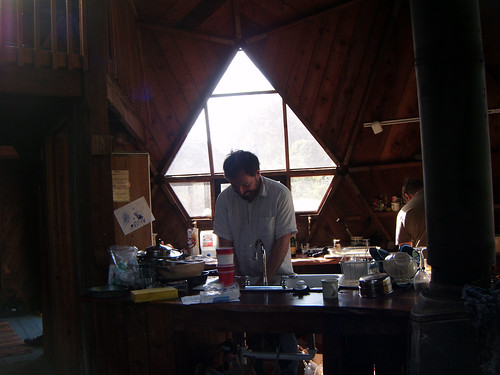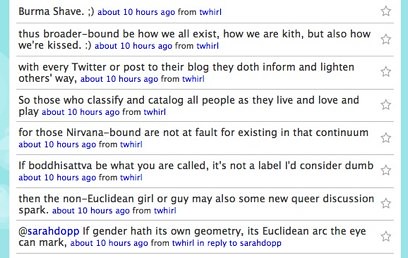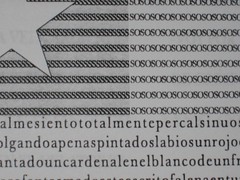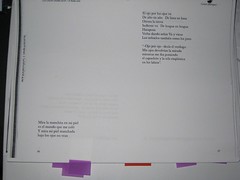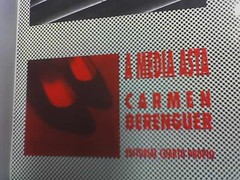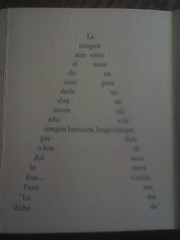Historical Hipster San Francisco Poetry
As I was reading up on the controversy about Blue Bottle Coffee putting a generator-drive truck with espresso machines into Dolores Park, I came across this mock documentary by “Kenita Burns” about the battle between Ritual Roasters and Blue Bottle coffee hipsters in San Francisco:
The quote at the end about Joan Baez and the song for the closing credits were the funniest parts to me, because while I love listening to boomer hippies tell stories about the olden days and I admire their many accomplishments, they’re really fun to parody.
I came into reading about Dolores Park and the coffee controversy from Chicken John’s giant rambling rants on his mailing list. A Blue Bottle employee wrote to him and he went into a full blast of rhetoric on the subject. You know who else promised us solar power? GEORGE BUSH. And probably Hitler. I liked Annalee’s suggestion that Blue Bottle power its espresso machines by bicycle. Earnest park-goers would pedal away helpfully and the company could also hire bikers to generate the power necessary for expensive coffee. This would turn the whole concern from a PR debacle into a total PR win and Blue Bottle would end up beloved of all (except for people who notice, like Chicken John, that it’s still an incredibly bad idea to sell off public park space to private businesses.)
Annalee and Claire Light and Charlie Jane and Annalee’s friend Lynn sat there for hours in Cafe Petra working quietly, reading, writing, and coding. I was messing around with some problems in Drupal for work, while I think everyone else was writing their novels or blogging for their day jobs. Later that night I read one of Charlie’s stories which blew me away completely. Timmi wrote me really nice email about my long essay about the connections between women writers and thinkers, which made me swoon with happiness.
Yesterday I also spent some glorious hours reading about Drop City in Colorado, Zome which started as a dome construction thing and has morphed into alternate power systems and Zometool toy construction kits; the Hog Farm and Black Oak Ranch, the Whole Earth Catalog folks, and other utopian movements in Northern California, inspired by my visit to the geodesic domes of Oz Farm (former utopian commune home of SF State computer science professor Lawrence Kroll). Tim Miller seems to have written some interesting books on utopian communities. I ordered some of his books, the TC Boyle Drop City book, and Peter Rabbit’s book which sounds like a very DIY zine style “history”. It is difficult to find much mention of the women of these communes and they often go by pseudonyms and then change their names a couple of times anyway, as with much of my research into women doing — well, pretty much anything. I will be making a list though once I have some books to go on. The web sources suck for figuring out who the women were in these movements and what they might have been thinking. Certainly they were thinking some bitter things about dishwashing.
As I read and researched I thought over some of the poems I have cooking. I’m still on a long-poem kick after 10 years of thinking about long poems and what can be done in them with ideas. I still like short poems, but am not the sort of poet who sits down to look at a lake and writes a poem about a lake. How dreary!!! How middle class! I despise most poets’ aesthetics. They can take their gardens, their analysis of their relationships with their dead parents, their constipated little emotions they applaud as they’re finally pooped out, and their glurgy thoughts about bombs, and shove them.
Enough with the cranky poet. Here’s what I’m thinking about.
Anyway, it was pleasant to swim around in the shape of the unwritten poem, with words and phrases popping into my head and going onto the page. The big idea and combination or juxtaposition of ideas and images and things starts to take form. Oddly – this is almost a non-verbal process. The shape or form or echo or feel of the poem, as a poem, forms before there are words to go into the poem (or while there are only a few words or a phrase as the keystone or touchstone.) Poems begin to separate out from each other as it becomes clear what ideas go with which other ideas and how they all interrelate. So before I have much of anything, I know that I’m writing a long big poem about daylighting a San Francisco creek, with a hefty dose of wistful critique of eco-liberalism; or about the Whole Earth Catalog’s history, utopia, the Internet, broken skeletons of dreams and the homes they morph into, Alia and the God Emperor of Dune, and the torturer Autarch Severian and the way we treat (and eat) information and cultural memory.
The stuff I’m writing now and have been writing for the past couple of years is part of a slowly evolving book called “Unruly Islands” and while I know mostly no one else cares what a book of poetry is “about” or how its elements are related, I care deeply about the meta-narrative of a poetry book as a thing in itself.
The alchemical process of distilling language out of this inchoate stuff puts me into an ecstatic trance. I feel a little bit insane. It’s hard to turn off. It’s hard to switch gears back into real life, real language, and linear thinking. That switching gears is part of what I feel I’ve learned over the years to let me have a fairly comfortable life in society and still stay a poet. Of course the sleeping pills also help.
